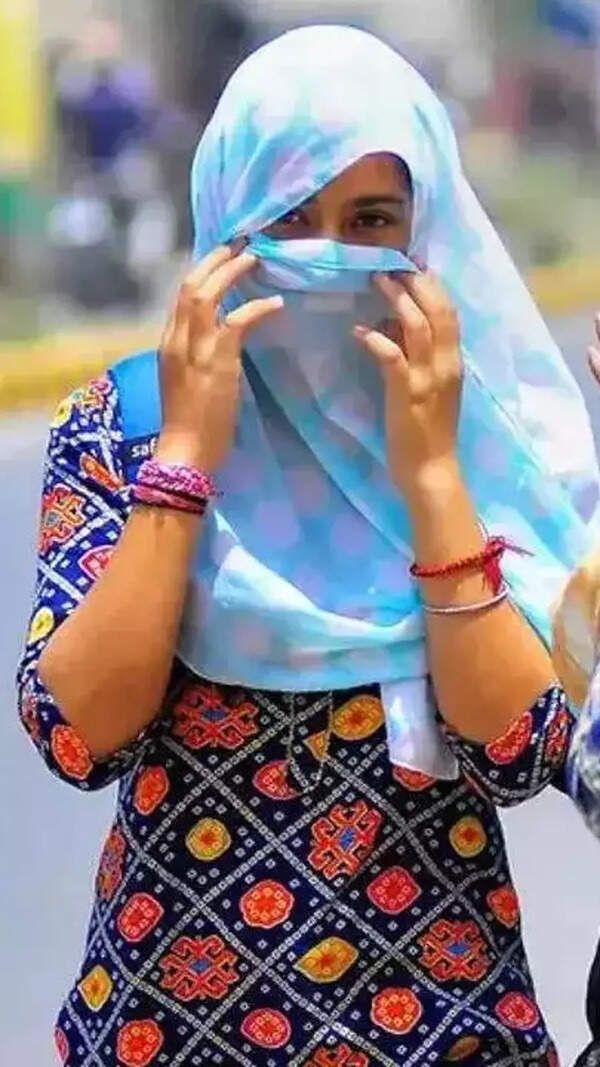- News
- India News
- Govt to fund STEM labs for classes 11 and 12 in schools catering to students with special needs
Trending Topics
Govt to fund STEM labs for classes 11 and 12 in schools catering to students with special needs

NEW DELHI: In order to promote and strengthen access to STEM (Science, Technology, Engineering, Maths) education for persons with disabilities, the department of empowerment of persons with disabilities has decided to fund setting up of STEM labs for classes 11 and 12 in schools catering to students who are blind, deaf or with intellectual disabilities across the country. The DEPwD under the ministry of social justice and empowerment will be covering 100 such schools each year based on the proposals they receive.
The move is seen as an attempt to create labs with accessible equipment for enabling experiments and practicals that form a critical component of STEM and without which science cannot be offered to these students in high school. DEPwD will now prepare guidelines for enabling schools to apply.
At a meeting of the governing body chaired by DEPwD secretary Rajesh Aggarwal earlier this week in Delhi, a decision was taken to support setting up of STEM labs under the national fund for persons with disabilities. “Technology is becoming more important for daily life and for career advancement. Students wanting to take-up STEM courses in higher education should get all opportunities,” Aggarwal told TOI.
As per the approved criteria, schools for the blind, deaf or intellectual disabilities under the National Institute of Open Schooling, CBSE/ICSE and other central and state school boards with a minimum of 10 children with special needs students passing class 10 will be eligible. Incase of inclusive schools they must have a minimum 50 children with special needs and at least 10 such students passing class 10 exams. The eligible schools will be provided a one time grant-in-aid of upto a maximum of Rs 5 lakh for creation of lab facilities.
When asked, Amit Kumar Sharma, acting principal, Model School for Visually Handicapped under the National Institute for the Empowerment of Person with Visual Disabilities in Dehradun explained that STEM labs are the most critical factor if students are to take-up science stream including Physics, Maths, Chemistry and Biology at the plus two level. This special school has had a lab for students upto class 10 for around a decade with modified equipment for geometry, braille labelled testing equipment for chemicals and 3D body organ models with tactile formatting. They do not have science for classes 11 and 12 yet and to enable that the school is now working on creating an advanced lab for STEM and then introduce science stream from the next academic session.
Nidhi Ashok Goyal, executive director of non-profit organisation, 'Rising Flame' who is herself a blind woman highlights that attitudinal and infrastructural barriers keep students with disabilities away from STEM education. Goyal is also the main coordinator steering the 'Disability, Equity and Justice' working group under ‘Civil 20 India’ under the G20 engagement process.
Elaborating on the attitudinal barriers, Goyal said, "It is not that they can't, the problem is that persons with disabilities are not provided the opportunities or considered capable enough. Investment in STEM labs will send a loud and clear message that STEM is also for disabled students and will enable them in accessing the spaces and enhance learning."
The move is seen as an attempt to create labs with accessible equipment for enabling experiments and practicals that form a critical component of STEM and without which science cannot be offered to these students in high school. DEPwD will now prepare guidelines for enabling schools to apply.
At a meeting of the governing body chaired by DEPwD secretary Rajesh Aggarwal earlier this week in Delhi, a decision was taken to support setting up of STEM labs under the national fund for persons with disabilities. “Technology is becoming more important for daily life and for career advancement. Students wanting to take-up STEM courses in higher education should get all opportunities,” Aggarwal told TOI.
As per the approved criteria, schools for the blind, deaf or intellectual disabilities under the National Institute of Open Schooling, CBSE/ICSE and other central and state school boards with a minimum of 10 children with special needs students passing class 10 will be eligible. Incase of inclusive schools they must have a minimum 50 children with special needs and at least 10 such students passing class 10 exams. The eligible schools will be provided a one time grant-in-aid of upto a maximum of Rs 5 lakh for creation of lab facilities.
When asked, Amit Kumar Sharma, acting principal, Model School for Visually Handicapped under the National Institute for the Empowerment of Person with Visual Disabilities in Dehradun explained that STEM labs are the most critical factor if students are to take-up science stream including Physics, Maths, Chemistry and Biology at the plus two level. This special school has had a lab for students upto class 10 for around a decade with modified equipment for geometry, braille labelled testing equipment for chemicals and 3D body organ models with tactile formatting. They do not have science for classes 11 and 12 yet and to enable that the school is now working on creating an advanced lab for STEM and then introduce science stream from the next academic session.
Nidhi Ashok Goyal, executive director of non-profit organisation, 'Rising Flame' who is herself a blind woman highlights that attitudinal and infrastructural barriers keep students with disabilities away from STEM education. Goyal is also the main coordinator steering the 'Disability, Equity and Justice' working group under ‘Civil 20 India’ under the G20 engagement process.
Elaborating on the attitudinal barriers, Goyal said, "It is not that they can't, the problem is that persons with disabilities are not provided the opportunities or considered capable enough. Investment in STEM labs will send a loud and clear message that STEM is also for disabled students and will enable them in accessing the spaces and enhance learning."
Start a Conversation
FOLLOW US ON SOCIAL MEDIA
FacebookTwitterInstagramKOO APPYOUTUBE







